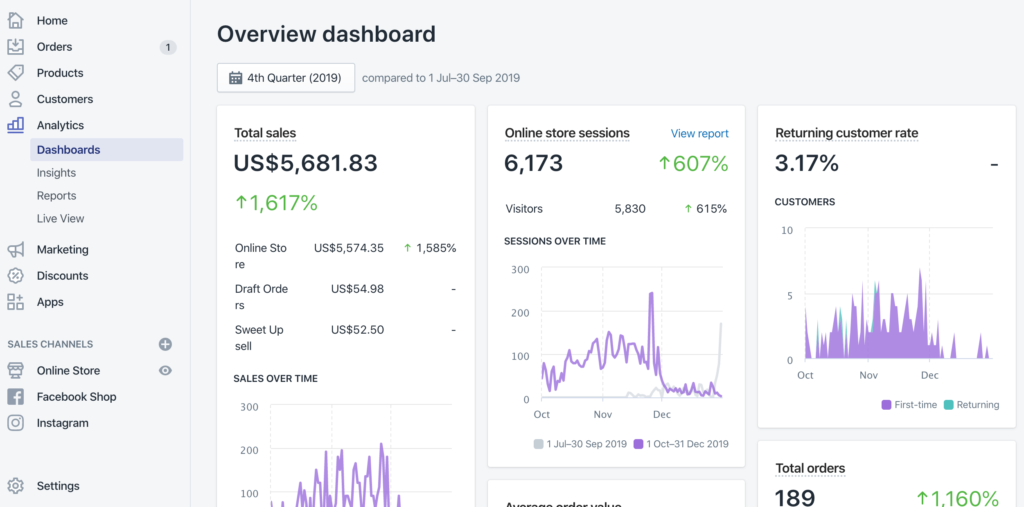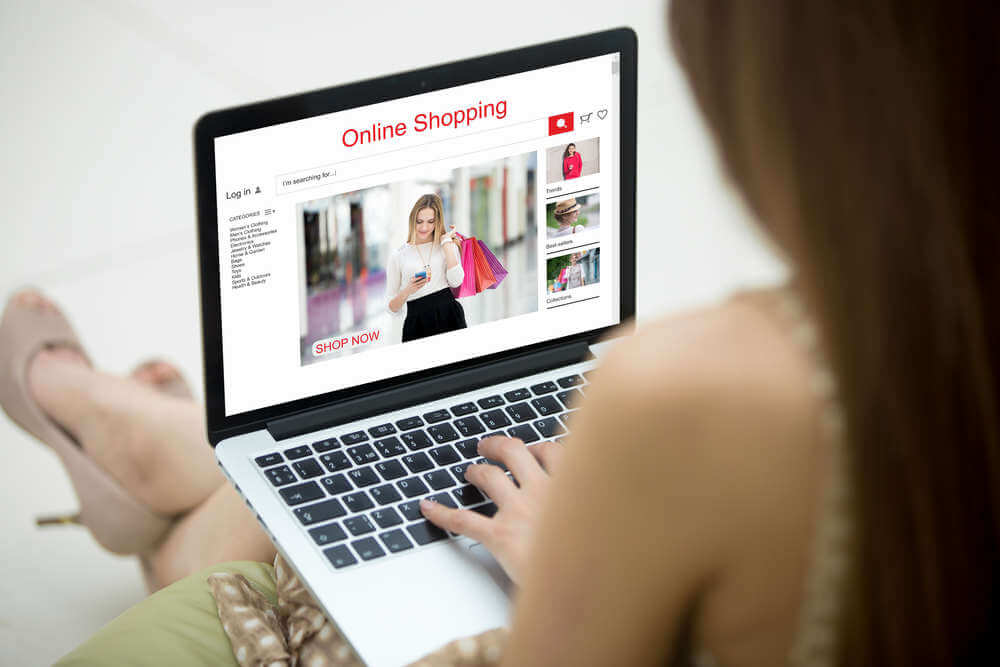So, you’ve decided to go for it, start a business and sell products online for the first time. In this guide to how to start an online business UK, we’ll go through each step, from setting up your website and how to market it to what kind of business you should legally register as.
In this guide to how to start an online business UK…
- Planning
- Domain names and registration
- Registering your company
- Do you need an internet merchant account?
- Choosing a website builder
- Creating the website
- Marketing your website
- FAQs
- How do you start an online small business?
- What’s the best online business to start?
- How do I start a business online with no money?
- Do I need to set up a business to sell online?
How to start an online business UK
Planning
You hopefully already have some idea of your business model. Businesses fail all the time due to a lack of planning, so you shouldn’t rush this – think everything through carefully. More specifically, planning how to start an online business means you should have a firm idea of your audience. Who are you selling to?
This will affect the kind of site you create, how you design it and how you’ll market it to them. Beyond that, what makes your website special? This is called its USP, or unique selling point – the reason someone would visit it over Amazon, eBay or anywhere else. If you don’t have a good answer for this, you should get one before going public.
Figuring out how to start an online business that will hit the ground running also means getting your supply chain functional before you go public. If you already have a supplier lined up, that’s great, but if not, consider looking on sites like AliExpress to find a third-party drop shipper who can help fulfill your orders.
Domain names and registration
Getting a website domain name
We’re now getting into the practical details of how to start an online business. The first step is registering a domain name: this is like a plot of land where your business website is going to live.
There are three things to know about domain names:
- They’re your website’s chance to make a good first impression
- You can’t change them once you’ve bought one
- Some are more expensive than others
In other words, you should think about your domain name for a while before you buy it. You want one that captures the name and purpose of your business but isn’t too competitive (unless you have money to burn, that is).
Several sites will let you compare the prices for different domain names before buying them, and some will even combine this with web hosting. Compare domain names to decide which is best for you.
Registering your company
The next step in preparing for how to start an online business is to register your business. There are 3 main options for online trading – sole trader, limited companies or partnerships. Each comes with different responsibilities and benefits. Registering as a sole trader is easiest, but it ties your personal funds to the business, which entails risk.
Starting a limited company means you’re at less risk if the company goes under, but you have more duties when it comes to reporting your finances. You’ll also have to pay more fees and taxes than if you were a sole trader, where you simply keep all your profits.
For new entrepreneurs, it’s usually best to start off as a sole trader because of how quick it is to get started. You can always register as a limited company later if you want to expand your operations or hire employees.
The government’s website has information on setting up a business, and their page on being a sole trader explains how to start an online business as one. Does your new online business and website comply with data protection law?
Check out this easy guide to make sure your business is safe!
Do you need an internet merchant account?
If you research how to start an online business yourself, you might get confused by the mention of ‘internet merchant accounts’. To put it simply, these are like special bank accounts online traders use to help reduce fraud. You need one to accept card payments online.
However, if you use a website builder to create your site, they’ll let you link with several ‘payment processors’ or ‘payment gateways’, like PayPal or Square, which skip this step by acting as big merchant accounts for all their users. To make your own life easier, you should make sure to choose one which handles all of this for you.
Choosing a website builder
Once you’ve got your domain set up, the next step is to decide how you’re going to create your site. The easiest and cheapest option is using a website builder, which lets you make a site with a visual editor, rather than manually writing computer code.
There are several options out there, and if you don’t already know how to start an online business it’s hard to know which is best. Even worse, many options out there are aimed at tech-savvy companies, not small-scale entrepreneurs.
Amazon, for example, offers a website builder to accompany their Amazon Web Services product. But this is too complex for simple websites – instead, it’s better to look at simpler options like Shopify, Square or WordPress.
If you’re wondering how to start an online business to sell products for the first time, we’d recommend using Shopify to create your site, manage stock and take payments.
These tools let you get your site online in a matter of hours, not days, and you can see exactly what it’s going to look like before you take it public. This is because website builders typically offer free templates that you can use and modify to take most of the hard work out of creating a site’s basic design.
If you’re unsure which website builders are best, you should check out our comparison page to learn more about what you should expect from the products you find online. A big benefit to using these sites is that they’ll often also ‘host’ your site.
One of the more confusing parts of learning how to start an online business is realising that simply creating a site doesn’t mean other people can see it. It first needs to be hosted, which means putting it on a server that other people can download it from.
It’s possible to host a site on your own computer, but you likely don’t have the specialised hardware or internet connection necessary. Instead, you should let website builders or dedicated hosting services handle this – it’s cheaper and easier.

Creating the website
Alright, you’ve chosen a builder. Now for the fun part – actually creating your site! You might have been planning website designs since you first decided you wanted to learn how to start an online business.
If so, now’s the time to start putting it into action. If not, try looking through the website builder’s library of pre-made templates for inspiration.
You’ll be able to change your mind later, so don’t worry about being locked into your choices just yet. You’re going to want eCommerce features on your site, so it’s a good idea to get your payment processors hooked up now. You don’t want to leave it till later and find out that the payment portal doesn’t work with the design of your site.
Different website builders support different payment processors.
Shopify, for instance, comes with out-of-the-box support for its own processor, which certainly makes the set-up process simple. Once you’ve verified that the payment system is working, it’s time to start actually adding products to your catalog. This process differs slightly depending on your platform, but the basic principle is always the same.
You’ll need to fill in the product’s title, its category, if it has any variants (different colours, for example), prices and amount in your inventory. Many website building tools also offer inventory managers that will handle some of this work for you.
With all of your products filled in, take a look around your site. If everything looks OK, go ahead and launch it – congratulations, you’ve just started your online business!
Marketing your website
Once your site is live, you might think it’s finally time to sit back and relax for a moment. Unfortunately, your work is only just beginning! When learning how to start an online business UK, nothing is more important than understanding how to market your hard work.
Digital marketing is fundamentally different from traditional advertising. Pay-per-click models, like Google Ads, make it more economical for small businesses to start ad campaigns right away. Rather than relying on word of mouth, you can kickstart your site by buying spots in Google’s search results for keywords relevant to your content.
But what if you don’t want to pay? That leads into the complex topic of Search Engine Optimisation, or SEO. If you want to know how to start an online business, it’s important to know at least the basics of SEO.
These include making your site easy to access and clearly labelling your content with relevant keywords. Check out these SEO tools to help you improve your website. A common mistake people make when they learn how to start an online business, however, is focusing on what they can do on the site itself.
One of the most powerful ways to turn heads is with a strong email marketing strategy, where you can entice potential customers to your online shop with offer codes and discount coupons.
If someone clicks on an ad for your site and it just takes them to the homepage, it’s got low chances of converting them into actually making a purchase. Landing pages are special pages for just that – guiding users who’ve just clicked on an ad wherever you want.
Thinking of setting up a new business? Check out our guide for a step-by-step checklist of everything you need to do.
FAQs – How to start an online business UK
How do you start an online small business?
- Plan out your business strategy
- Register a domain name
- Register your company (if applicable)
- Build your website with a website builder
- Set up and connect a payment processor
- Start marketing your site to build traffic
What’s the best online business to start?
Intelligently planning how to start an online business means taking advantage of the unique features of trading on the internet.
Online, your site can be visited by people all around the world. Worldwide shipping makes serving local customers much less important. This makes niche eCommerce businesses that wouldn’t be successful in traditional real-world stores viable. Find a market nobody else is operating in but is easy to market – specialist gear for particular industries, for example.
How do I start business online with no money?
The best way to start an online business without any money is to use free website builders, like WordPress of Wix, to start your online presence. You should also focus on SEO and social media rather than traditional paid advertising, as these options don’t cost anything to get started with.
Do I need to set up a business to sell online?
You need to register with the government to trade as a business online. However, you don’t need to register as a limited company. You can instead operate as a sole trader – self-employed, in other words. The UK government outlines the responsibilities of a sole trader on their website.
In brief, you have to keep records of your business transactions and submit tax returns digitally regularly.
Did this guide on how to start an online business UK help you? If so please recommend DigitalSupermarket.
Ready to grow your business? Check out this guide for 26 new ways to grow your business online fast!





